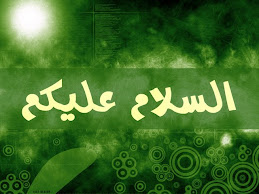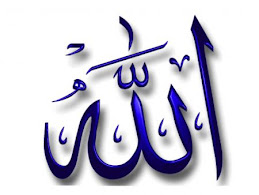It is obligatory upon the accountable persons to embrace the Religion of Islam, to remain steadfast to it, and to comply with what is obligatory upon them of its rules, i.e., every accountable person must be Muslim, stay Muslim, and follow the rules of Islam. Among what one must know, believe in, and utter immediately if one was a blasphemer, or else in the prayer, is the Testification of Faith, which is:
(ASHHADU ALLA ILAHA ILLALLAH, WA ASHHADU ANNA MUHAMMADAR-RASULULLAH, sallallahu ^alayhi wa sallam.)
The meaning of ASHHADU ALLA ILAHA ILLALLAH is: "I know, I believe, and I declare that nothing deserves to be worshipped except Allah, Who is One (Wahid), Indivisible ('Ahad), without a beginning ('Awwal), Eternal (Qadim), Alive (Hayy), without an end (Qayyum), Everlasting (Da'im), the Creator (Khaliq), the Sustainer (Raziq), Knowledgeable (^Alim), Powerful (Qadir), the One Who does whatever He wills, i.e., whatever Allah willed to be shall be and whatever Allah did not will to be shall not be, the One Who without His protection no one can evade sinning, and without His help no one has the strength to obey Him, Who is attributed with all proper perfection and is clear of all imperfection. There is nothing like Him, and He is attributed with Hearing and Sight."
Allah exists without a beginning and everything else exists with a beginning; He is the Creator and everything else is a creation. Every creation that exists, be it among entities or deeds, from the fine dust to the Ceiling of Paradise (^Arsh1), and every movement, rest, intention, and thought of the slaves is created by Allah. Hence, no one other than Allah--be it nature or reason--creates any thing. Things become existent by Allah's eternal Will, Power, and Knowledge as mentioned in the Qur'an:
و خلق كل شيء
Surat al-Furqan, Ayah 2 means: [Allah created everything]. He raised all the creation from the state of non-existence into the state of existence. No one creates with this meaning of creating except Allah.
هل من خالق غير الله
Surat Fatir, Ayah 3 means: [No one is the Creator except Allah]. An-Nasafiyy said: "If a person hit glass with a stone and broke it, then the acts of hitting and breaking and the state of being broken were created by Allah. The slave only acquires the act. Allah is the only One Who creates.
لها ما كسبت وعليها ما اكتسبت
Surat al Baqarah, Ayah 286 means: [Every self will be rewarded by Allah for the good deeds it acquired and will be accountable for the sins it acquired].
The Speech (Kalam2) of Allah is without a beginning like all of His other attributes, because He, the Exalted, is unlike all the creations in the Self (dhat), Attributes, and Actions. Subhanahu wa ta^ala, He is greatly clear of all what the blasphemers say.
Summing up what has been mentioned before, it is affirmed that Allah, ta^ala, has thirteen attributes which were mentioned repeatedly in the Qur'an, either explicitly or implicitly. These are: Existence (al-Wujud), Oneness (al-Wahdaniyyah), Eternity (al-Qidam, i.e., al-'Azaliyyah), Everlastingness (al-Baqa'), Non-neediness of others, (al-Qiyamu bin-Nafs), Power (al-Qudrah), Will (al-'Iradah), Knowledge (al-^Ilm), Hearing (as-Sam^), Sight (al-Basar), Life (al-Hayah), Speech (al-Kalam), and Non-resemblance to the creation (-al-Mukhalafatu lil-hawadith). Since these attributes were mentioned many times in the Qur'an and hadith, the scholars said knowing them is a personal obligation (fard ^ayn).
Since eternity is confirmed to the Self (dhat) of Allah, His attributes are eternal, because a created attribute entails that the attributed self is created.
The meaning of ASHHADU ANNA MUHAMMADAR-RASULULLAH is: "I know, I believe, and I declare that Muhammad, the son of ^Abdullah, who is the son of ^Abdul-Muttalib, who is the son of Hashim, who is the son of ^Abdu-Manaf, from the tribe of Quraysh, sallallahu ^alayhi wa sallam, is the slave of Allah and His Messenger to all the creation. One must believe he was born in Makkah and sent as a Messenger therein; he immigrated to al-Madinah and was buried therein; and he was truthful in everything he told about and conveyed from Allah. Among what the Prophet informed us is: the torture in the grave and the enjoyment therein; the questioning of the two angels, Munkar and Nakir; Resurrection (Ba^th); Assembly (Hashr); the Day of Judgement (Qiyamah); Presentation of the deeds (Hisab); Reward (Thawab); Punishment (^Adhab); the Balance (Mizan); Hellfire (Nar); the Bridge (Sirat); the Basin (Hawd); the Intercession (Shafa^ah); Paradise (Jannah); seeing Allah, ta^ala, with the eye in the Hereafter, without Him having a form or being in a place or a direction--different from the way a creation is seen; the dwelling forever in Paradise or Hellfire; the belief in Allah's Angels, Messengers, Books, and Destiny (Qadar1)--both good and evil; and that Muhammad, sallallahu ^alayhi wa sallam, is the last of the prophets and the best of all the children of Adam."
Moreover, it is obligatory to believe every prophet of Allah must be attributed with truthfulness, trustworthiness, and intelligence. Consequently, lying, dishonesty, vileness, stupidity, and dullness are impossible to be among their attributes. They must be attributed with impeccability of blasphemy, enormous sins (kaba'ir), and the small, mean sins before and after Prophethood. On the other hand, they are not impeccable of committing other small sins, although they are immediately guided to repent before others imitate them. Prophethood was not bestowed upon the brothers of Yusuf, who, excluding Binyamin, committed the mean deeds mentioned in the Qur'an. The Asbat are the descendants of those brothers who were chosen for prophethood.







